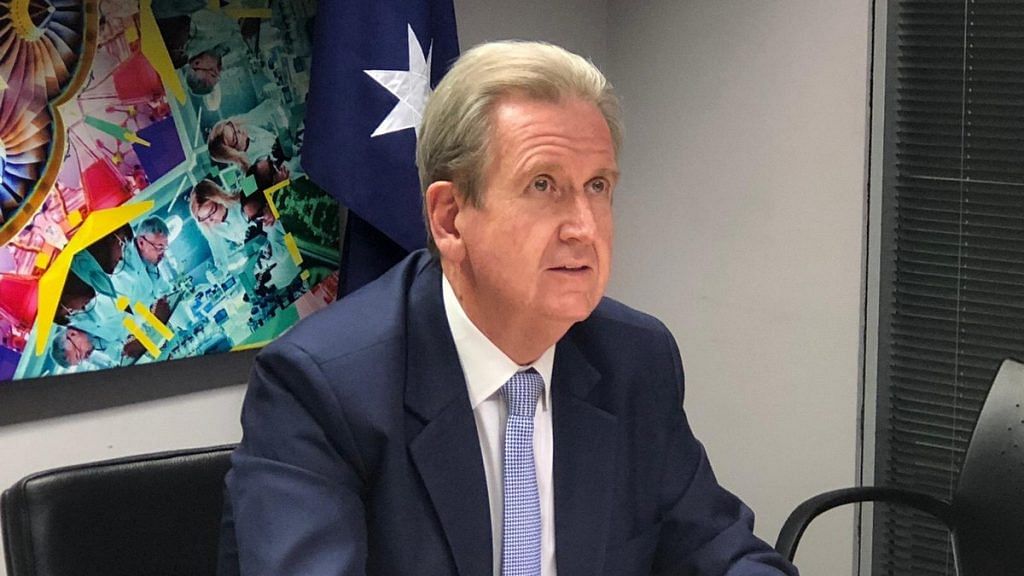New Delhi: Australian High Commissioner to India Barry O’Farrell has said that Canberra is “deeply disappointed” with the new interim Taliban government in Afghanistan because of its lack of inclusion of women and minorities.
In an interaction with a select group of reporters Thursday, O’Farrell also said Australia hopes that the new administration in Kabul ensures that the promises made to the international community, of upholding human rights among other things, are followed.
“Australia is deeply disappointed by the lack of inclusion in the new government, particularly that there are no women, there are no representatives from the Hazara community and other ethnic minorities. It includes two members of the Haqqani Network which as we know is a terrorist organisation. We are consulting our closest partners in our approach and in our engagement with the Taliban,” said the High Commissioner, ahead of the first-ever 2+2 format dialogue between India and Australia on 11 September.
He added, “We are focused on Taliban ensuring safe passage, ceases violence, pursues an inclusive govt, prevents violent extremism within Afghanistan, prevents outward terrorism from Afghanistan, upholds human rights, particularly (of) women and girls. We will judge the government of Afghanistan by its action and shape engagement with Taliban.”
O’Farrell also noted that Australia is working with other countries, including India, to ensure that those stuck in Afghanistan— both Australian nationals and Afghans — are safely evacuated and are not stopped by the Taliban from leaving the country.
“The new government will be judged based on all these steps and what steps it takes for the people,” he said.
Also read: Afghanistan’s new Taliban govt has a clear Pakistan stamp and that’s bad news for India
China on agenda at India, Australia 2+2 meet
India will be hosting the inaugural 2+2 ministerial dialogue on 11 September, which will take place between Australian Foreign Minister Marise Payne and Defence Minister Peter Dutton, and their Indian counterparts S. Jaishankar and Rajnath Singh.
According to the high commissioner, both sides will be discussing an exhaustive agenda but the focus will be on China as both nations are also part of the four-member Quad, or Quadrilateral Dialogue, along with the US and Japan.
The 2+2 dialogue also assumes importance in the wake of the first ever in-person meeting of all Quad leaders in Washington on 24 September.
India and Australia upgraded their bilateral ties to Comprehensive Strategic Partnership in June last year during a virtual meeting between Prime Ministers Narendra Modi and Scott Morrison.
Both sides had also signed the Mutual Logistics Support arrangement and Joint Declaration on a Shared Vision for Maritime Cooperation in the Indo-Pacific.
According to O’Farrell, India and Australia will also hold a maritime participation exercise in October after the Malabar Naval Exercise Phase 2, which is slated for 11 to 14 October. The Malabar Naval Exercise is an annual maritime exercise among navies of India, US, Australia and Japan.
“We will also discuss regional security and joint priorities in support of ASEAN, including practical cooperation under the ASEAN Outlook on the Indo-Pacific,” said Defence Minister Dutton, in a statement before leaving for India.
Meanwhile, Payne said, “These inaugural 2+2 discussions are a cornerstone of the Australia-India Comprehensive Strategic Partnership, which is founded on a shared commitment to a secure, stable and prosperous Indo-Pacific region.”
Also read: Australia makes fresh push for free trade deal, sends former PM Abbott to talk to Modi govt
